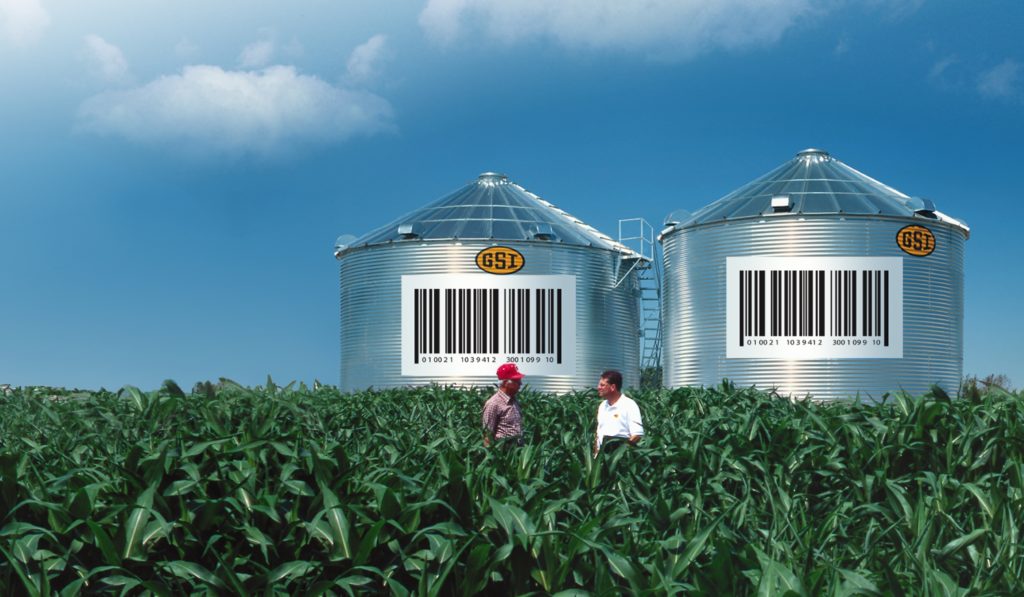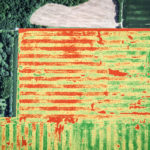Data as Currency: The Future of AgTech
As the AgTech sector booms, so too does the hype and interest around ag data. We need to treat data as the valuable currency that it is – in our conversations, our operations, and perhaps above all, in our legal agreements.

Data as Currency: The Future of AgTech
As the AgTech sector booms, so too does the hype and interest around ag data. We need to treat data as the valuable currency that it is – in our conversations, our operations, and perhaps above all, in our legal agreements.In history there have been numerous advancements in industry and technology that have fundamentally changed the nature of work – from the cotton gin to the Internet. As we try to predict what major advancement comes next, it’s clear that data is going to be highly influential to how we work.
Data + the new Industrial Revolution
Humans have been collecting data on things like weather and population for hundreds of years. What’s radically changed over the past few decades is the degree to which we can gather precise, hyper-localized data, and lots of it. Our smartphones, wearable devices and digital trails provide clues to what we like and enjoy, and more and more often, how we do our work.
In the wake of automation and advanced information networks like the Internet, there’s a shift happening in work – it is no longer valuable to just do work, but to provide information on how that work happened. Advanced data analysis techniques uncover insights and best practices from the most seemingly innocuous of metrics. For example, sales people who repeat their customer’s name are more likely to make a sale, and an employee’s performance can be predicted based on the type of web browser they use.
As our analytical abilities advance, data in and of itself is becoming more valuable. Analysts are able to take the information that we (and our devices) record and turn it into insight – whether it be developing a product that addresses a previously unknown market need or insights that inform decision making.
With these advancements come some difficult questions – who has the right to use or access the data? What are the rules around using it appropriately? And, most importantly, who owns it?
Data in AgTech
As the AgTech sector booms, so too does the hype and interest around ag data. We know that rich, precise ag data has the power to increase operational efficiencies, crop yields, and profits, but to whom does it belong?
As in other industries, the ethical and logistical questions surrounding data have been contentious and confusing. There’s a flurry of options available to farmers who want to create and manage a digital strategy on their land, but there’s also an incredible lack of transparency and clarity around ethical questions like ownership. Farmers practically need to have a law degree to be able to decipher some of the data contracts put forth by equipment manufacturers, and too often they feel that they’ve been duped somehow. This hardly seems like the best way to advance an industry.
We know that data has the power to unlock a lot of value, but if we have no common understanding of the ethics surrounding it, we’re unlikely to see the increase in profits and yields we know we can achieve. So where do we go from here?
We need to treat data as the valuable currency that it is – in our conversations, our operations, and perhaps above all, in our legal agreements. Ag data represents the thoughts, decisions and work farmers do, and as such, they should be able to sell, trade or keep their data to use as they sees fit.
Other industries are grappling with the same issues around data. WHOOP, a personal fitness tracker company, made waves in April when it announced it had reached a data deal with the NFL, in which players could track sell their data for analysis or keep it for themselves. The agreement implicitly acknowledged that for NFL players, their bodies are their livelihoods and life’s work. Because players make the decisions about how to care for themselves and train, data is akin to a proprietary recipe, and as such, they deserved clear ownership and control over that data. While this is one very specific example, it is a sign that data should be treated as the valuable currency it is, and the market is starting to shift more broadly towards control and ownership.
To bring this same standard to agriculture is going to take work, both from the companies who create data policies and the farmers who do business with them. For data to function as a currency to be sold, traded, or kept, farmers need to demand change from the bottom up. My advice to farmers is this:
- Work with equipment manufacturers and partners with clear, transparent data agreements.
- Don’t be afraid to ask questions about how your data will be used and who will own it.
- Look into after-market solutions that give you the power over how your data will be used.
- And, find tools that work across brands and uses.
To truly develop data as a currency for all of us, we need to work together to put power back in the farmer’s hands.
Jason Tatge is the CEO and founder of Farmobile, the farm data company. He has been a driving entrepreneurial force behind leading internet and Ag-Tech companies for over 15 years. You can learn more about Farmobile’s approach here: https://www.farmobile.com/.
To learn more about AGCO’s approach to data standards, privacy and ownership, visit www.AGCOtechnologies.com/about-fuse/. Learn more about AGCO and Farmobile by watching the video below!



